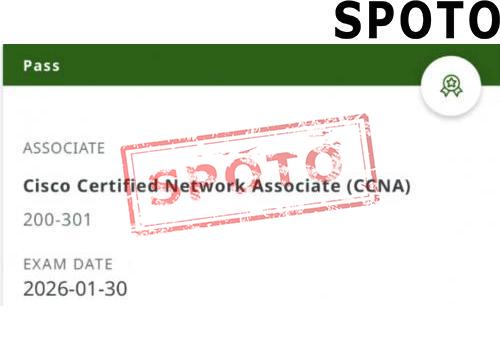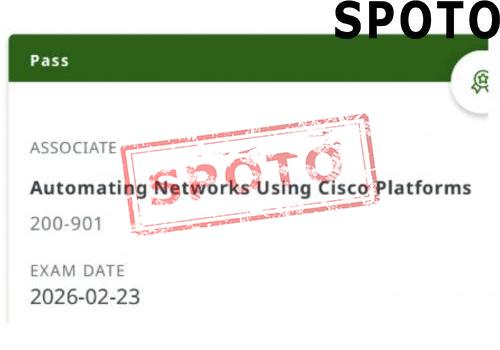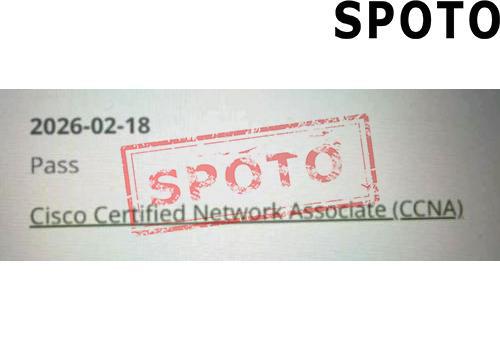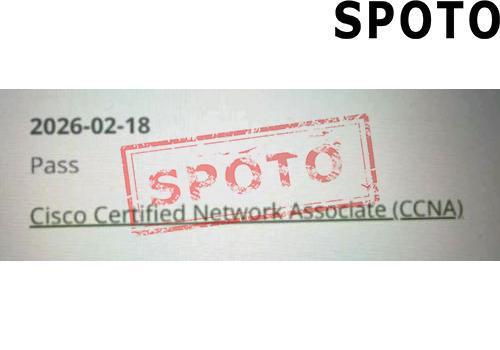
Table of Contents
Cisco certifications have become a criterion and grading measure in IT enterprises, independent of their operational sizes. The employees and the employers (the businesses) gain from these certificates. The CCNA certification from Cisco has helped many applicants experience tremendous professional advancement. The CCNA and CCNP certificate programs, and additional complicated Cisco training modules, are accessible through this specific certification. It has been claimed by non-CCNA-certified employees working for various IT organizations that they believe they must become certified to stay up with the pace.
CCNA certification
Cisco certification provides several benefits for IT companies as well as their personnel. Your teams can profit much from it while also expanding their knowledge base. Several topics, such as networking basics, security fundamentals, programmability, and more, are easy to learn with the CCNA certification.
Competitive Advantages of Cisco Certification Training:
-
Improved Learning Curve:
You have the opportunity to broaden your knowledge and create a good understanding of the fundamentals of Cisco networking as you work towards becoming CCNA certified. Even though you have years of expertise in networking, you must improve your skill sets if you want to beat the competition.
-
You are officially certified by The Networking Leader:
Cisco leads the sector in terms of installed base and market share. Through network channels, ever-increasing internet traffic is transported using Cisco infrastructure solutions. Candidates for working with Cisco products must successfully finish the CCNA program. Inherited expertise and information will become more and more appealing to the market. Furthermore, according to IDC, 70% of IT directors search for such credentials to signify candidates' qualifications.
-
More Career Options are Available:
You might have a variety of employment alternatives available to you with a Cisco Certification. Students can use their foundational knowledge in cutting-edge fields like cloud computing, data centers, collaboration, networks, programmability, security, and wireless. The IT sector is growing as a result of all these developments. These skills also help the business improve its success and productivity graphs.
-
Certification provides a basis for professional networking:
Network engineers and businesses throughout the world have long preferred Cisco Certifications. Understanding network protocols and architecture is becoming more and more in demand. By giving you the knowledge and skills necessary to advance in networking, Cisco certification may help you get there. You will learn from the course how to correctly comprehend, set up, maintain, and troubleshoot network infrastructure hardware.
-
Less Comprehensive Outline:
Networking experts frequently disagree as to which platform is superior: Cisco or Microsoft. It is simpler for a qualified individual to pursue the course because the Cisco certification programs don't have lengthy outlines. In addition, you can continue taking Microsoft certification courses at the same time as your CCNA training sessions. After earning your Cisco CCNA certification, the way is open for you to pursue further professional-level certifications in the networking field. Getting your first certification is often a complex and time-consuming procedure, but once you make the first move, you can manage expectations appropriately.
-
Universal Acceptance:
The CCNA certification is recognized around the world in several nations. Compared to networking specialists without the CCNA credential, people with the certificate can bargain for a higher pay scale. In recent years, there have been more CCNA positions accessible on the market. It is a requirement for eligibility that a candidate holds the CCNA certification before they may apply for one.
Using the information gained via the CCNA certification program, one may further their career by studying new networking concepts and taking cyber-security courses.
In a Nutshell, the Benefits of Cisco Certification CCNA
Compared to networking specialists without a CCNA, employers prioritize CCNA-certified experts. If you are a networking specialist with CCNA certification, you have the benefits in this situation.
- If a candidate completes the CCNA certification program, new options and employment opportunities will open up. Reputable IT companies welcome the opportunity to hire CCNA-certified specialists and provide excellent incentives to keep them on board for the long run.
- The CCNA certificate program guarantees that the corresponding applicant has the skills demanded to manage even the most challenging and sophisticated networking systems. Additionally, regardless of the operational sizes of the IT businesses, the applicant can adapt to the working environment.
- The CCNA certification is a prerequisite for additional Cisco networking training.
- Based on the most current type of information, the applicant can outperform other networking engineers.
The CCNA certificate program has developed into the most sought-after IT networking training. This certificate program aims to develop fundamental analytical and problem-solving abilities required to excel in the IT and networking industries. With a CCNA certification, a candidate may demonstrate that they have the necessary skill sets for various networking career jobs, including network engineer, support engineer, network system administrator, and network security associate. Naturally, more than a solitary CCNA certification will be required if you want to surpass your rivals, but it does guarantee that you are headed in the correct direction. Moving ahead of the learning curve will inspire you to pick up other networking abilities that will advance your career.
Conclusion:
The effectiveness, security, and creativity of enterprise networks frequently determine the difference between success and mediocrity in the 21st century's competitive business environment. A chain is only as strong as its weakest link, according to the proverb. You strengthen each link in your company's digital chain by offering Cisco Certification Training to your network management staff.
The Cisco training program should be incorporated into your company's professional development strategy as a strategic step. It improves your team's technical proficiency while fostering a culture of excellence, creativity, and continual learning. This training has a cascading effect that results in better network performance, better business continuity, and an advantage over rivals in the digital sphere.











